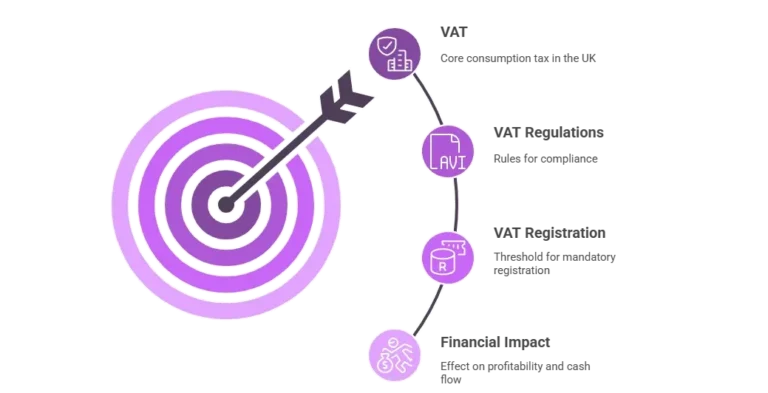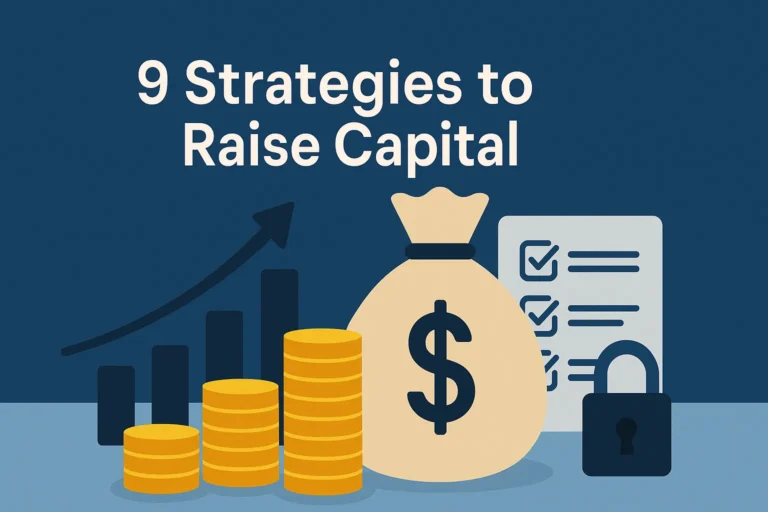The Starting Hires That Shape a Startup’s Culture
Why Your First Hires Define Your Startup’s Future
Launching a startup is an exciting journey—full of big ideas, bold risks, and endless potential. But here’s the truth: your startup’s success hinges on more than just a great product or funding. The starting hires you bring on board are the foundation of your business, shaping its culture, operations, and growth trajectory. These early team members don’t just fill roles; they set the tone for how your startup collaborates, innovates, and connects with customers. A strong, aligned team can propel you toward success, while the wrong hires can derail your vision fast. So, who are the starting hires that shape a startup’s culture? In this guide, we’ll explore the critical roles to prioritize, why they matter, and how to hire right. Packed with stats, tips, and real-world examples, this 2,000+ word roadmap will help you build a team that drives a thriving, sustainable culture. Let’s dive in!
Why Early Hires Are Critical for Startup Culture
Startup culture is the heartbeat of your business—your values, work style, and vibe. It influences decisions, customer relationships, and growth. Early hires play a massive role here because:
- Small Teams Amplify Impact: With a lean crew, each person’s ideas, actions, and attitude directly shape daily operations and long-term direction.
- They Build the Foundation: First employees establish norms—how you meet, solve problems, and celebrate wins.
- Risk of Bad Fits: A poor hire in a small team stands out fast, hurting morale or momentum.
- Stat: According to CareerBuilder, a bad hire can cost a startup $17,000 on average—costlier for senior roles.
The right early hires create a resilient, innovative culture that helps your startup stand out in a competitive market. Let’s explore the key roles to prioritize.
The First 5 Hires That Shape Your Startup’s Culture
When building your team, focus on these five critical roles. They balance vision, execution, tech, marketing, and finance—laying a strong cultural and operational base.
1. Chief Executive Officer (CEO): The Visionary Captain
Why It Matters
The CEO is your startup’s guiding star, setting the vision, mission, and culture. Often, this is you, the founder, in the early days. A strong CEO defines the “why” behind your business, inspiring the team and stakeholders.
Key Responsibilities
- Craft the company’s long-term goals and strategy
- Build culture—values like innovation, collaboration, or risk-taking
- Secure funding, forge partnerships, and represent the brand
- Stat: McKinsey & Company notes a CEO can influence 45% of company performance.
Cultural Impact
A passionate, bold CEO sets a tone of ambition and unity. If you’re collaborative, your team will be too. A risk-taking CEO encourages innovation.
Hiring Tip
If you’re the CEO, embody your values. If hiring externally (rare early on), seek someone aligned with your vision, with leadership skills and startup grit.
2. Chief Operating Officer (COO): The Execution Expert
Why It Matters
The COO turns your vision into reality, keeping operations smooth and scalable. This role shapes a culture of efficiency and accountability, ensuring the startup runs like a well-oiled machine.
Key Responsibilities
- Oversee daily operations—processes, workflows, and team coordination
- Implement systems for growth (e.g., project management tools)
- Solve operational bottlenecks
- Work closely with the CEO to align execution with vision
Cultural Impact
A detail-oriented COO fosters a culture of reliability and structure. Their focus on execution builds trust and discipline in a fast-paced startup.
Real-World Example
A tech startup struggled with missed deadlines. Hiring a COO to streamline workflows cut delays by 30%, boosting team confidence and client trust.
3. Chief Technology Officer (CTO): The Tech Trailblazer
Why It Matters
In today’s digital world, a CTO is vital—especially for tech startups. They lay the technical foundation, shaping a culture of innovation, problem-solving, and adaptability.
Key Responsibilities
- Build and manage tech infrastructure (software, hardware, etc.)
- Make high-stakes decisions on tools and systems
- Stay ahead of trends—AI, cloud, security—to keep you competitive
- Lead development teams for a scalable, user-friendly product
Cultural Impact
A forward-thinking CTO encourages experimentation and tech-driven solutions. Their choices signal a commitment to quality and progress.
Hiring Tip
Look for a tech-savvy visionary with startup experience. Can’t afford a full-time CTO? Consider an outsourced or fractional CTO to save costs.
4. Chief Marketing Officer (CMO): The Brand Builder
Why It Matters
No matter how great your product is, it won’t sell without customers. A CMO shapes a culture of customer focus and creativity, spreading your story and driving growth.
Key Responsibilities
- Craft the brand narrative and marketing campaigns
- Build buzz—social media, ads, content—to attract users
- Understand the target audience and incorporate feedback
- Grow awareness and early adopter base
Cultural Impact
A CMO’s energy sets a tone of engagement and adaptability. Their customer obsession teaches the team to prioritize users in every decision.
Stat & Use Case
Aberdeen Group found aligned marketing and sales efforts boost revenue by 20%. A SaaS startup hired a CMO to launch a blog and ads, doubling sign-ups in 6 months.
Hiring Tip
Seek a versatile “jack-of-all-trades” who can write, design, and run campaigns. Early on, they might double as a community manager.
5. Chief Financial Officer (CFO): The Financial Steward
Why It Matters
Cash is king for startups. A CFO ensures financial health, shaping a culture of stability, transparency, and smart risk-taking.
Key Responsibilities
- Manage cash flow, budgets, and forecasting
- Secure funding—loans, investors—and ensure compliance
- Balance agility (e.g., quick hires) with sustainability
- Advise on scaling and cost management
Cultural Impact
A CFO’s discipline fosters trust and accountability. Their clarity on finances encourages the team to value resources and plan wisely.
Real-World Example
A retail startup faced cash shortages despite sales. A part-time CFO optimized cash flow, cutting waste by 15% sindicato and securing a bank loan for growth.
Hiring Tip
Early on, outsource accounting or hire a fractional CFO to save costs while getting expert guidance.
How to Hire the Right People for Your Startup
Hiring for culture and skills is tricky but crucial. Here’s how to nail it:
Qualities to Look For
- Flexibility: Startups change fast—hires must adapt.
- Passion: Belief in your vision fuels commitment.
- Trustworthiness: Small teams need reliable players.
- Multi-Talented: Early hires often juggle roles—e.g., a CMO coding landing pages.
Hiring Strategies
- Word of Mouth: Tap friends, colleagues, or alumni networks for trusted candidates.
- Recruitment Agencies: Specialists find skilled, culturally aligned talent.
- Cultural Fit: Ask interview questions like “How do you handle change?” to gauge alignment.
- Cost-Effective Options:
- Internships: Bring fresh energy and ideas at lower cost.
- Fractional Roles: Part-time CFOs or CTOs save money.
- Outsourcing: Delegate tech or finance to experts early on.
Challenges to Avoid
- Burnout: Multi-role hires can overwork—monitor workloads.
- Poor Fit: A bad hire costs $17,000 and disrupts culture (CareerBuilder).
- Rushing: Take time to vet—rushing fills roles but risks quality.
Benefits and Risks of Multi-Role Hires
Startups often lack resources, so early hires wear many hats. Here’s the breakdown:
Benefits
- Cost Savings: Fewer hires mean lower payroll.
- Broad Insight: Employees learn multiple business areas.
- Problem-Solving: Versatile team members tackle diverse issues.
Risks
- Burnout: Too many tasks drain energy and morale.
- Skill Gaps: Untrained hires may struggle in new roles.
- Lower Productivity: Constant role-switching slows output.
Tip: Balance multi-role hires with clear priorities and support—e.g., tools or training—to keep them engaged and effective.
Real-Life Examples of Culture-Shaping Hires
- Tech Startup Turnaround: A mobile app startup lacked direction. A visionary CEO and COO duo set a bold mission and streamlined tasks, boosting team morale and launching on time.
- E-Commerce Success: A clothing brand hired a CMO to build social media buzz. Their creative campaigns grew followers by 50%, shaping a fun, customer-first culture.
- Financial Stability Win: A food delivery startup faced cash flow woes. A fractional CFO cut costs by 20% and secured funding, fostering a culture of fiscal discipline.
Tips to Build a Strong Startup Culture
- Define Values Early: Set core principles—e.g., innovation, transparency—and hire for them.
- Lead by Example: As CEO, model the culture you want—collaboration, risk-taking, etc.
- Encourage Input: Small teams thrive when everyone’s voice shapes decisions.
- Celebrate Wins: Recognize efforts to build positivity and unity.
- Adapt as You Grow: Revisit culture as markets or teams shift.
Conclusion
Your startup’s culture is your secret weapon—and the starting hires you choose shape it from day one. The CEO sets the vision, the COO drives execution, the CTO innovates, the CMO builds your brand, and the CFO keeps finances solid. Together, these roles create a culture of purpose, efficiency, and growth. By hiring flexible, passionate people who align with your values, you’ll lay a foundation for a resilient, competitive business. Don’t rush—use networks, agencies, or cost-effective options like fractional roles to find the right fit. Ready to shape your startup’s future? Start by defining your culture, listing must-have skills, and recruiting your dream team today. Your journey to a thriving, culture-driven startup begins with these hires—make them count!






